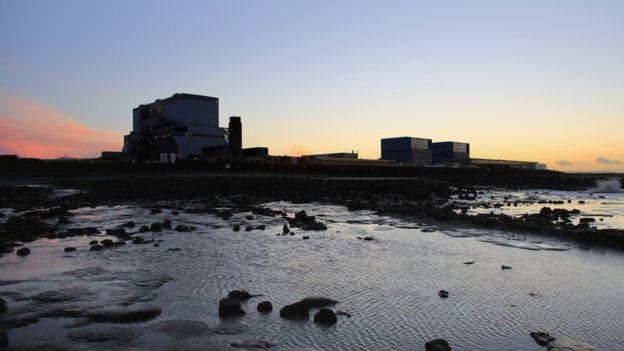Chinese warning on Hinkley
- Published
- comments

Hinkley Point is the world's most expensive nuclear project.
After intervention from the Chinese ambassador, it is also now the litmus test for Anglo-China relations under the new regime at Number 10.
After EDF's board narrowly agreed to press ahead with the project, the UK government surprised company officials by saying it needed several weeks to consider before signing.
The decision to delay is widely thought to have come from Theresa May herself, influenced by Joint Chief of Staff and outspoken critic of China's creeping influence, Nick Timothy.
Prestige
Without China's involvement, this project would not have received EDF board approval.
It was seen as a risk sharing mechanism for the French, a prestige project for China and the ushering in of ever-closer Chinese relations.
Nevertheless, and perhaps understandably, the prime minister wanted time to think.
Well, today's warning from the Chinese ambassador that the relationship between the two countries is at risk has given her plenty to think about.
Writing in the Financial Times, Liu Xiaoming made clear that the stakes here are high by linking government approval for Hinkley Point to the future of the relationship which is he said a "crucial historical juncture".
Golden era
No kidding. In a post Brexit world, Britain needs all the friends it can get and much was made of the importance of forging close trade links with non-EU nations.
There may be legitimate security concerns over having sensitive infrastructure assets under Chinese management but a decision to back out will clearly take the shine off the "golden era" of collaboration between the two countries, proclaimed during Xi Jinping's state visit last year.
Theresa May is not the only one who wants to take her time. The French Journal du Dimanche quoted an unnamed EDF manager pointing out the benefits of hitting the pause button.
If construction was delayed until 2019 when a similar reactor will be up and running (fingers crossed) at Flamanville in France, the cost of financing the project would fall dramatically.
With a working example, EDF could secure cheaper loans with government guarantees rather than self finance through costly equity.
That would reduce the threat to EDF's finances, appease the French unions and lower the guaranteed price of the electricity produced from £92.50 to £75 per megawatt hour - a big saving for UK taxpayers.
It would however delay the project another three years at a time when infrastructure spending is seen as crucial to create jobs, stimulate the economy and keep the lights on.
Plenty to keep the PM's mind occupied when she heads off for her summer holidays.